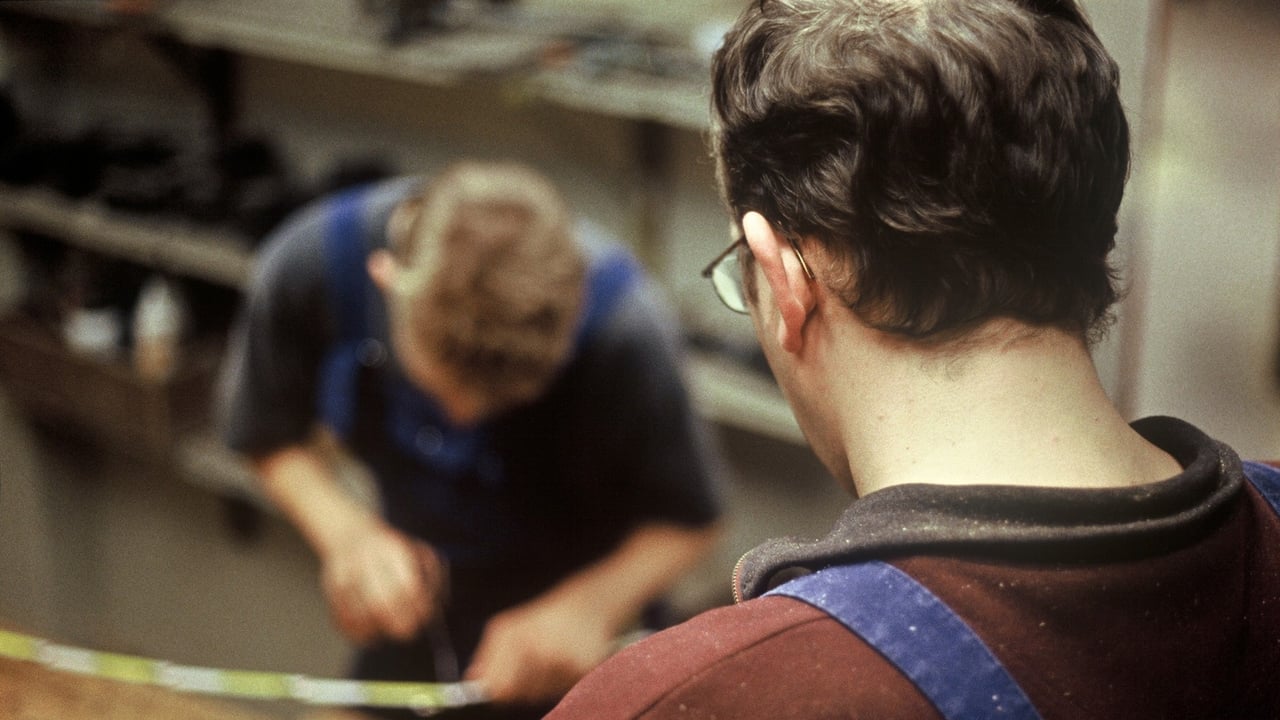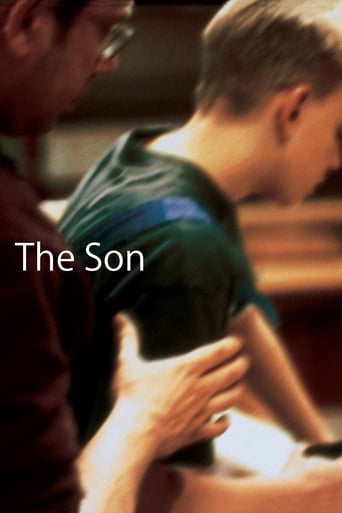

I like the storyline of this show,it attract me so much
... View MorePlot so thin, it passes unnoticed.
... View Moreone of my absolute favorites!
... View MoreIt is a whirlwind of delight --- attractive actors, stunning couture, spectacular sets and outrageous parties.
... View MoreWe're thrown into a situation loaded with mystery. Olivier, a carpentry tutor of some sort (like everything else, we learn more about that later), is anxious about something. He's moving around nervously, furtively, and appears to be stalking one of the boys at his institution. Is he afraid? Curious? Depraved? It's not until half an hour into the film that we learn the nature of his interest in this boy. Even then, his intentions are unclear. At one point, he looks in the mirror and he appears to be inscrutable even to himself. We spend every moment with him, but we don't know what he's planning or thinking, but he always seems to be measuring the situation. The tension is always present, thanks to the restrained but very physical performance of Gourmet, the deliberate pacing of story information, and the tight, menacing camera-work as conceived by the Dardennes. The action is gripping because we long to get inside Olivier's head, a character who is some balance of wounded, sympathetic and dangerous, and we don't know where the balance will fall. Perhaps at the end we don't know much more, but we know enough. A satisfying and engaging film from the Dardennes, who always seem to make so much out of so little.
... View MoreThe Dardenne brothers, Luc and Jean-Pierre, are an acclaimed Belgian filmmaking duo who direct, write, produce and edit their films together. They first became known for The Promise (1996) which was an unconventional story about illegal immigrants and the business behind it. Their next film was Rosetta (1999) a film which built around the idea of Franz Kafka's The Castle - where a prince gets thrown out of the castle; in Rosetta a girl gets thrown out of society. In Rosetta they started modernizing cinema, both philosophically and narratively, and continued it in Le fils which, to my mind, represents a vast turning point in the language of cinema. In their films social messages are combined with subtle documentary-like narrative.The plot isn't as important to the Dardenne's as the movement is. The energy on the screen, how close we get to the characters, how close the distance between them and the audience is. The job Olivier does, woodcraft, has obviously something to do with this: it's the kind of work where you need to measure distances between destinations; Olivier is measuring the distance between himself and the boy. There's no music at all in Le fils - as in the most films by the brothers. The opening credits will put the whole audience into silence and when the film's over the silence will fall to the theater once again. There's not much of dialog either in Le fils and through that we have to observe to get familiar with the characters. And this is what the Dardenne brothers are famous of - minimalism. We get to know the characters through their body language; through their eyes and gestures.The story is about a carpentry teacher Olivier (Olivier Gourmet) who works in a rehab center. One day he refuses to take a new student to his class for an unknown reason, but eventually starts stalking and following him. When he finally accepts to take Francis (the new student) to his class an absurd relationship build between them.The narrative is something mind-blowing for those unfamiliar with the earlier work of the brothers such as Rosetta (1999). This is a radical change in the language of cinema. The whole movie is filmed with a hand-held-camera so all the events are seen from the main character's shoulder. And that let's us to actually feel his emotions and get into his head. The narrative is very slow and quiet which let's us to observe and think on our own. The camera follows the character - it shows its life. The camera doesn't know, it doesn't see, it only sees what the character sees. So what has been cloaked from us? "Cloaking is very important" -Luc Dardenne.Olivier, the main character, is so well built that one can't compare it with anything else. In Le fils he's very calm but yet it seems like he's aggressive and could explode at any second. The characterization is minimalist but very precise and considered. To me Le fils represents finest characterization out there today.The main themes, this film deals with, are loneliness, guilt and forgiveness. It can be seen as some sort of an allegory for Christian redemption and forgiveness. The film is not religious but the Dardennes had a strong catholic upbringing and just as Krzysztof Kieslowski, an acclaimed Polish filmmaker, so do they understand what a vast impact Christianity has had on us and our conception of morality. They both have said that they're atheists and Luc Dardenne has written in his book, Behind Our Pictures: "God is dead, we know it. We're alone, we know it."Le fils is quite a film, to my mind it's the best film made in the decade. It's multidimensional and complex a film which could be interpreted in a thousand different ways. To me the film was a touching moral study about the ultimate power of love, and forgiveness. Alongside with Rosetta this is one of the most experimental films made in the past few years. I think the brothers have reached a whole new level in cinematic narrative. The brothers are film-philosophers and Le fils has once again proved that film can and should be an instrument for thinking and contemplating.
... View MoreDo not watch this movie if you have ADD. It a very slow plot with superb acting that makes you stick with it. Although slow paced, it has an edge of your seat quality about it, that keeps you glued to the screen (if for no other reason knowing that the plot must pick up!).Overall, it is little like watching paint dry, and then realizing the paint is drying in a very interesting and unforgettable pattern. I would recommend the movie for those studying film or acting, only as to see how to achieve an intensity without using flashy gimmicks or intense music. The direction is unlike most films in movies today, depending on superb acting (alone) to carry the movie through. If you are interested in this type of setup, get the movie. Otherwise, I would skip it!
... View MoreThe Son is a movie about forgiveness, and how the very act of forgiving propels you forward as a human being. And to not only forgive the person who took away your son, but to become a guardian, a teacher to that person is an act of grace. Olivier exhibits this grace throughout the movie, but it is a grace that is not evident by just watching him on a day to day basis. You have have to follow him, listen to him, be with him constantly and understand his circumstances to realize this. I suppose, in a way, that many people possess this grace, but its hard to find it in them if you can't follow them around with a camera. Olivier, on the surface, would not seem like a very interesting person if you saw him on the street, or worked with him on a daily basis, and the boy seems like a dolt, but this movie makes them so interesting, so compassionate, not as characters, but as real people. It teaches you to look beneath the surface of things, of human beings, and if you look hard enough, you'll find beauty everywhere.
... View More